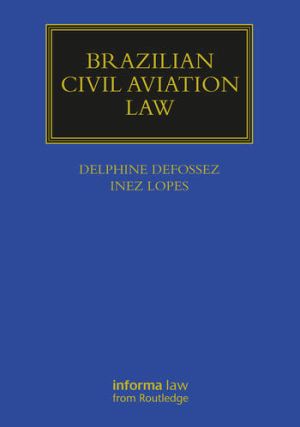
Brazilian aviation law is often a mystery for people outside Brazil. Despite being based on German and Italian law, Brazilian law does not resemble any other legal system; for instance, it took nearly a decade and the Brazilian Federal Supreme Court to finally acknowledge that the Montreal Convention prevails over the national consumer code. This book introduces Brazilian aviation law to professionals by laying out and discussing the applicable laws and competent authorities on essential elements of civil aviation to help professionals navigate this system.
Brazilian aviation law has been through a process of major transformation, the latest occurring in December 2021 with the view to change half of the current Brazilian aeronautical code. Until 2005, the aviation sector was mainly regulated by the Aviation Civil Department (DAC), which was a department directly subordinated to the Ministry of Aeronautics and mainly comprised of military personnel. Although Brazilian aviation has been demilitarised through the creation of the National Civil Aviation Agency (ANAC) by the Federal Law 11.182/2005, its military past still influences the current regimes, and air traffic control remains part of the Ministry of Defense. Understanding the various agencies in charge of civil aviation and laws governing important aspects of such area is essential; consequently, this book discuss the laws applicable to competition, consumers, airport and aircraft operation, safety and accident investigations, and environmental concerns.
Written in a format to meet the needs of lawyers, academics and aviation professionals, the book explains the key concepts and laws applicable to aviation in Brazil. Each chapter explores an essential area of aviation law to present readers with an insider’s understanding of the whole system to facilitate business relations with Brazil.